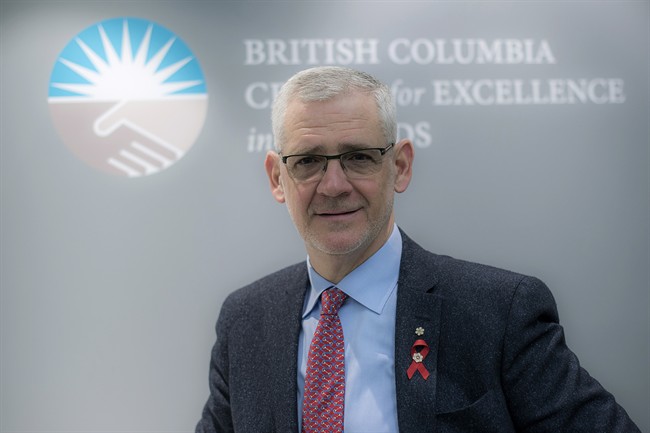VANCOUVER – World-renowned HIV experts from British Columbia are stepping in to help control a massive outbreak of the disease in rural Indiana.

The B.C. Centre for Excellence in HIV/AIDS is partnering with Indiana University’s school of medicine in an effort to stymie an epidemic in Scott County where 184 people have tested positive for HIV since December 2014.
Nearly 10 per cent of the county’s 4,200 residents are believed to be injection drug users, with many crushing and injecting the opioid painkiller Opana.
The B.C. Centre for Excellence is known for its innovative ‘treatment as prevention’ approach to HIV, where patients who test positive for the virus immediately receive free treatment to stop its transmission from progressing and reduce the chance of others getting infected.
“We wanted to be able to collaborate with them because thus far, we’ve not had an HIV outbreak such as what we’re seeing in Indiana, in Scott County, in a rural setting in the United States,” said Dr. Diane Janowicz, an expert in infectious disease at Indiana University.
READ MORE: General HIV testing only solution to stop epidemic, says Vancouver doctor
Combining treatment as prevention with harm reduction and addiction management has brought epidemic levels of HIV on Vancouver’s Downtown Eastside virtually under control, said Dr. Julio Montaner, director of the B.C. Centre for Excellence.
“What the Indiana colleagues are trying to do is learn from our experience and trying to export and adapt this strategy that has proven so successful here,” he said.
- Joffre Lakes to close for 3 periods this year under agreement with First Nations
- ‘Why aren’t we doing more?’ White Rock on edge with killer on the loose
- B.C. carjacking victim says she doesn’t trust the ‘catch-and-release’ system
- Inquest into fatal Surrey hostage-taking recommends cameras for ERT teams
“We are here to support them, to give them the know-how and, of course, there are a lot of aspects to doing this work that we have now mastered after years of doing this work. And it will save them a lot of trouble to work with us.”
The two-year partnership between the B.C. Centre of Excellence and Indiana University — funded in part by the National Institute on Drug Abuse — will focus on research instead of treatment, looking at what factors influence a patient in accessing care or prevention tools.
Since the HIV epidemic began in Scott County, several groups have been working to provide treatment options, including a needle exchange.
“This is not to supplement or supplant (the treatment services) at all, but to kind of to help figure out how we can make that treatment even better or optimize it as much as possible,” Janowicz said.
READ MORE: Why the United Nations is adopting Canadian scientist’s HIV strategy
Located about 130 kilometres south of Indianapolis, Scott County is a economically deprived area where many people live below the poverty line and the main town has a single stop light, Janowicz said.
The economic challenges often means people don’t have health insurance and need to be enrolled in the state medicaid program before they can access care.
“Certainly, this outbreak has been fairly devastating to the people who are there. So I think a lot of the progress that we’ve made has offered quite a bit of hope to people,” Janowicz said.
The centre’s treatment as a prevention strategy has already been used in several other countries including China, France and Panama. It was also adopted by the United Nations as part of a plan to significantly reduce HIV rates by 2020.
Montaner said he is convinced the strategy could stop the spread of the HIV epidemic in Indiana, too.
“What we have seen consistently is that if you apply the strategy aggressively and effectively, the epidemic can be controlled,” he said.



Comments